Meet the Stylists Who Dress Music’s Biggest Stars, From Jay-Z to Justin Bieber
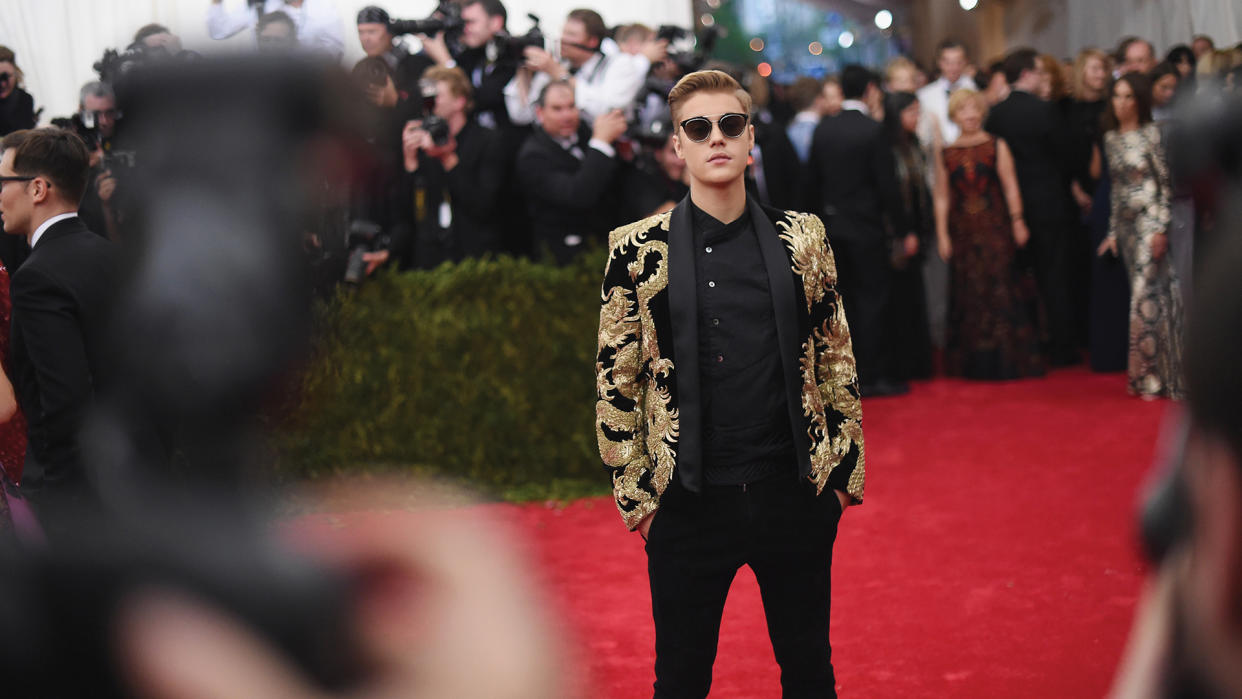
Stars are not made overnight. Sheer talent isn’t enough to rise to the top as a global superstar. Behind nearly every A-list performer is creative developing and shaping their image. Whether it’s sourcing the perfect fitting pair of jeans for a country star or working with top fashion houses to create a custom look for a pop icon’s world tour, these image makers are some of the best in the business. Sometimes, such as in June Ambrose’s case, a creative director can be so influential that the looks they create for their clients can become historical pop culture moments.
Find out how these creative directors and stylists keep Jay-Z, Shawn Mendes, Stevie Wonder, Luke Bryan and more stay at the top of their style game.
More from Robb Report
Inside Monterey, the Opulent New NYC Restaurant With Carts for Prime Rib, Dessert and Martinis
De Beers Unveils Its First Gender-Neutral Jewelry Collection
Pharrell's New Auction Site Lets You Bid on Rare Streetwear--Including His Own
June Ambrose, New York City
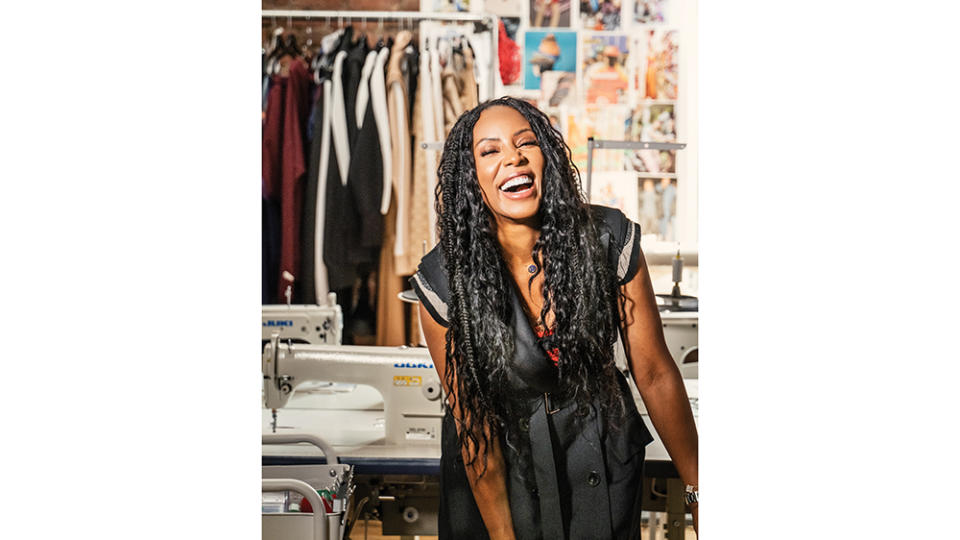
June Ambrose has defined the images of many of the most groundbreaking A-list artists in R&B and hip-hop. Think of Missy Elliott’s patent-leather blow-up suit from the 1998 video for “The Rain (Supa Dupa Fly).” Or the shiny red outfits worn by Sean “P. Diddy” Combs and Mase in the Notorious B.I.G.’s “Mo Money Mo Problems.” Her fearlessness working with those artists, as well as Jay-Z, Mariah Carey, Busta Rhymes and others, would be the ignition behind an entire industry—the fire it needed to burst into the mainstream.
“I’ve always been quite precocious, quite confident,” says Ambrose. “As a young lady, I was really kind of just sure. And I knew that whatever I was gonna do, it was gonna be something that allowed me to dictate what my destiny was going to be.” But while pure drive and serious spunk were the foundation of her success, there were a few key experiences in her teens and early 20s that became the build- ing blocks on which she constructed her career. At a performing-arts high school in New York, she specialized in drama and musical theater but took costume design as an elective—a skill that would serve her well when she had to create wardrobes from scratch for emerging artists. She opted to work at an investment bank instead of going to college, laying the groundwork to launch her own business and become the “CEO of my own life,” as she describes it. And pivotally, the day she strode into Diddy’s office after he founded Bad Boy Records and he offered her a job shaping the look of up-and-coming artists changed the course of her life over the next three decades.
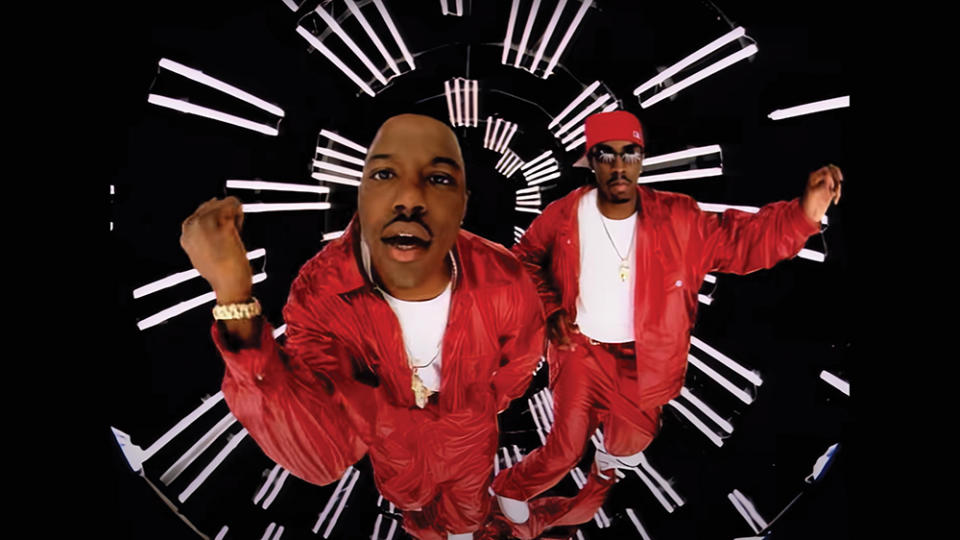
The two bonded over their mutual appreciation for fashion and herculean levels of ambition. “I walked in like an artist in my actress character, with big glasses and a lot of audacity,” says Ambrose. “We hit it off because I was curious.” They both had a knack for knowing which way the wind was blowing and how to stay one step ahead of it. Ambrose was looking for the opportunity to shift the narrative of the culture—a topic they discussed in those early days. “I thought about how only Black television played rap music,” she says. “And I was like, ‘Why can’t we be on VH1 and MTV?’ That was the goal. Even then I could tell you that hip-hop culture would be the No. 1 genre of music. I’m sitting in it right now.”
But getting there wasn’t easy. Fashion houses were not eager to loan to rappers, so Ambrose designed many of the looks herself, including Elliott’s inflatable outfit and Jay-Z’s linen suit for his first music video from his 1996 album Reasonable Doubt. She sketched, created patterns, chose fabrics and had the outfits realized in Manhattan’s Garment District. “I was like, ‘I’m Edith Head, I’m a costume designer. I’m Bob Mackie,’ ” says Ambrose with a laugh. “I’m gonna couture everything. Because I couldn’t get to the couture houses, right? So, I created couture houses in New York City. And it was not to the level of the ateliers at, say, Chanel, but for what we needed it to be, it was grand.”
The scrappy environment fostered creativity. If she had borrowed designer clothing for the big cross-over hit “Mo Money Mo Problems” instead of dreaming up Diddy’s and Mase’s shiny red and silver looks, “would we have had the impact that we did?” Ambrose speculates. “It was something that had to be imagined.”
Today, hip-hop stars sit front row at nearly every major runway show. But in the early days, there were few for- ward-thinking designers and executives who would get behind hip-hop. “I will never forget when Lisa Lawrence [a PR executive representing major Euro- pean houses], who was one of those pioneers, loaned me my first group of Jean Paul Gaultier pieces,” says Ambrose, who can’t recall the artist she was borrowing for because she has styled more than 200 music videos. “It was a big deal. She was like, ‘Just take it and don’t say anything because they will never understand why I’m giving this to you.’ ”
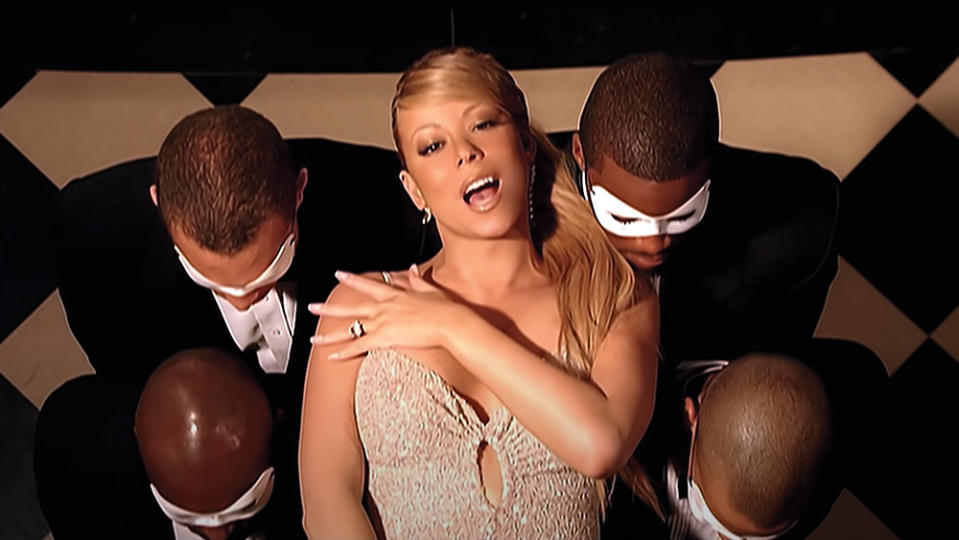
As the stars’ popularity and influence grew, collaboration deals followed. Ambrose brought Missy Elliott’s “Respect M.E.” collection to the table with Adidas and served as creative director. “I said, ‘Hey, I’m remixing all of your stuff anyway,’ ” she says. “I was taking the tracksuits and reimagining them in leather and luxury fabrics.” It is not lost on her that many of the concepts she and her artists put forward in early-aughts hip-hop now frequently appear on the runway. Reimagined Adidas tracksuits popped up at Balenciaga’s spring 2023 show, and new-wave hip-hop artist Travis Scott debuted a collaboration with Dior. “It’s fair to look back at my body of work and say, ‘I was part of something that was meaningful. It was bigger than me,’ ” Ambrose says. “Street culture has eclipsed ready-to-wear. Ready-to-wear is street culture. Almost every major fashion house has tapped it.”
Now the brands come calling for her. Through her agency, AI Creatives, she is currently working with Puma, which tapped Ambrose in 2020 to launch a womenswear basketball collection. As a creative director, she controls everything from the design to the marketing campaigns. She spent the summer prepping a Puma show at New York Fashion Week for September, and by early 2023, just in time for the 50th anniversary of hip-hop, she will release her first eponymous collection. “It is an aha moment,” says Ambrose. “I feel like I’m the wizard behind the curtain.”
Work Ethic:
“I was on an advertising job doing a L’Oréal campaign when I had my son, and I literally showed up to a meeting three centimeters dilated with my three assistants putting everything in contingency. That was on a Friday, and by Monday, the day of the shoot, I gave birth and was on the phone walking through all the looks. The following week I was shooting a cover of Rolling Stone with Jay-Z and breastfeeding in the bathroom.”
Fact:
Though best known for her roster of hip-hop clients—she is Jay-Z’s creative director— Ambrose has also worked with Dave Matthews Band and the Backstreet Boys.
Creative Cobbler:
When Ambrose was doing all of Busta Rhymes’s iconic videos, she was custom-making his Timberlands. “I found a cobbler. I was building lasts and all of this stuff because I wanted it to look a certain way.”
Ugo Mozie, Los Angeles
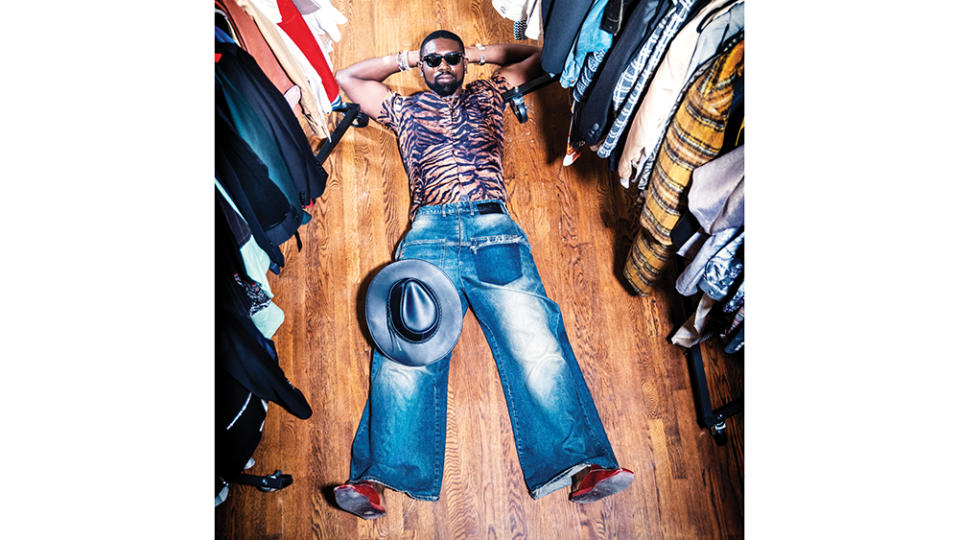
In 2008, at 17 years old, Ugo Mozie packed his bags and left his hometown of Houston for St. John’s University in Queens, N.Y. But over the next two years, he gained his most vital education outside the classroom. By age 19, he had interned at Virgin Records, started a fashion label and signed his first celebrity clients, singers Dawn Richard (a former protégé of P. Diddy) and Teyana Taylor—both via Twitter.
All that activity wasn’t sustainable, however, and it wasn’t long before he had burnt himself out. So, in 2011, he decided to hop the pond to Paris, where he became the fashion editor at indie magazine Ghubar. He stayed only a year, but the connections he made became invaluable. Settling down in California, Mozie says, “I just became this middleman for high-fashion brands to connect with these Hollywood kids at the time.”
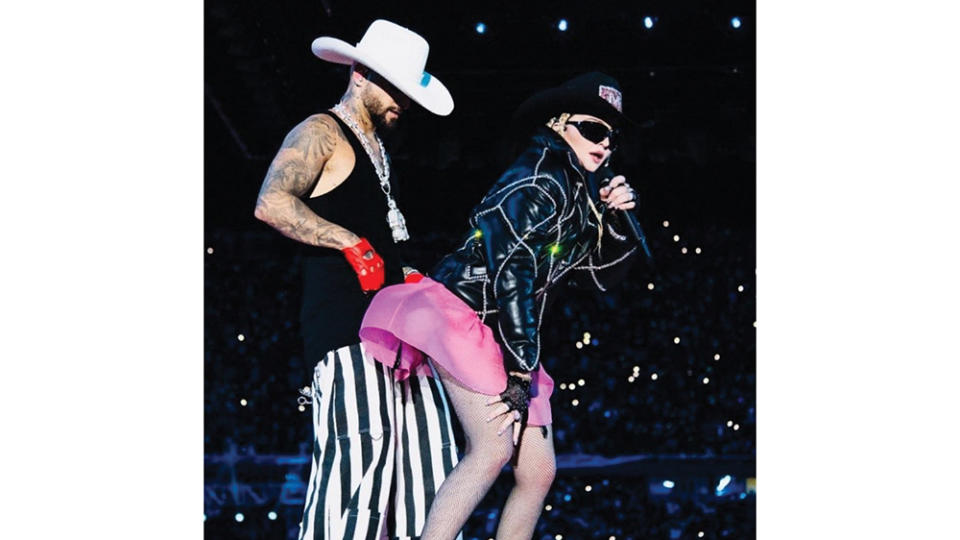
The “kids,” including Justin Bieber and Travis Scott, then 18 and 21 years old, respectively, were eager to start playing in the haute realm. He recalls bringing Bieber to Paris for his first serious fashion foray and styling him for a photo shoot by Karl Lagerfeld. The young star later met with Balmain creative director Olivier Rousteing, who would go on to create a custom gold-brocade suit, dreamed up by Mozie, for Bieber’s first appearance at the Met Gala, in 2015.
Mozie’s client roster has only continued to skyrocket. He has worked with numerous Grammy-award-winning artists—from Celine Dion to Beyoncé—and among the stars on his current lineup are Maluma, Jon Batiste and Stevie Wonder. Each has a vastly different style. Mozie has created wild looks for Maluma’s Papi Juancho world tour, including pink sequined pants and a Scottish tartan print. He also stays at the ready for last-minute needs, such as Madonna’s request for a pair of cowboy hats for her and the Colombian singer’s duet at his homecoming concert in Medellín last May. “Unlike other artists, he does not like repeating outfits,” says Mozie with a laugh. “I’m like, ‘Yo, you understand that even Beyoncé repeats her tour looks?’ ”
Mozie has assembled equally attention-grabbing ensembles for Batiste and Wonder. Alexander McQueen and Dolce & Gabbana are go-to brands for the customized suits that define Batiste’s “edgy but much more refined” style, he says, adding that one of his favorite pieces for the singer was a Dolce & Gabbana cus- tom-embroidered cape, worn to this year’s Grammys, with so many crystal beads it took 20 people roughly 400 hours to complete.
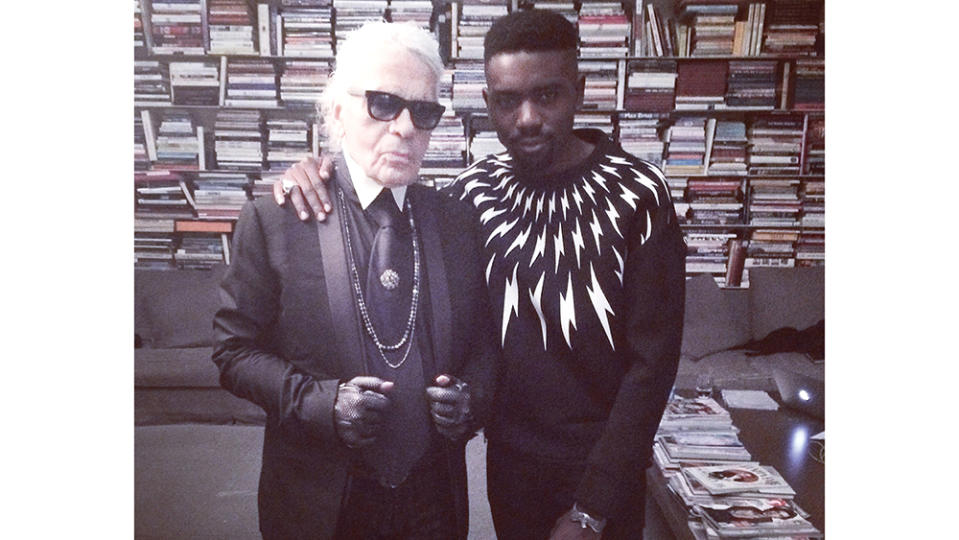
Because Wonder is blind, Mozie describes each look in detail before dressing him. “I’m so honored by the fact that he trusts me,” Mozie says. “There’s an ultimate trust there, where he allows me to just have fun and do what I want.” Sensory perception, however, is a priority, so the clothes must feel soft and comfortable. Wonder has been favoring Gucci tracksuits of late, but Mozie says the singer doesn’t care about labels and typically prefers to support up-and-coming Black designers, such as Waraire Boswell and Rich Fresh, and Nigerian labels, including I.N Official. “He loves the story behind the garments more than the garment itself,” he says.
For Mozie, the give and take fuels his creativity. “I love the fact that I have clients that are outspoken and do have an opinion and their own personal style. It allows the collaborative work to tap in.”
Memorable Moment:
At the Lagerfeld shoot, the famed designer advised Mozie and Bieber how to stay forever young. “He was analyzing our bodies and our physiques. He said, ‘Your metabolism is best at this age. If you are able to create your dream body, you can maintain that the rest of your life by starting now.’ ”
Brand Clout:
While Maluma is frequently spotted wearing Audemars Piguet, it was Mozie who was enlisted by the Swiss watchmaker to be a brand ambassador.
Side Hustle:
Mozie is a milliner. His namesake hats have been worn by everyone from Celine Dion and Mary J. Blige to Michael B. Jordan and Floyd Mayweather.
Tiffany Briseno, Los Angeles

Tiffany Briseno’s career at the intersection of fashion and music might seem preordained. Her father, a Mexican drummer, played with Carlos Santana, and both she and her mother are former models. After 17 years as a choreographer, she studied fashion design, which led to styling, which led to her big break: dressing Canadian singer-songwriter Shawn Mendes.
“We came together doing his ‘Stitches’ music video when he was 16,” says Briseno. “That opened up my horizon in celebrity styling and menswear styling, specifically.” Eight years later, Mendes is a global superstar and the youngest male artist to top the Billboard 200 with four studio albums, and Briseno has remained his key image maker. “I was the first person that got him to wear a leather jacket,” she says, adding with a laugh, “Prior to this, he was in flannels.”
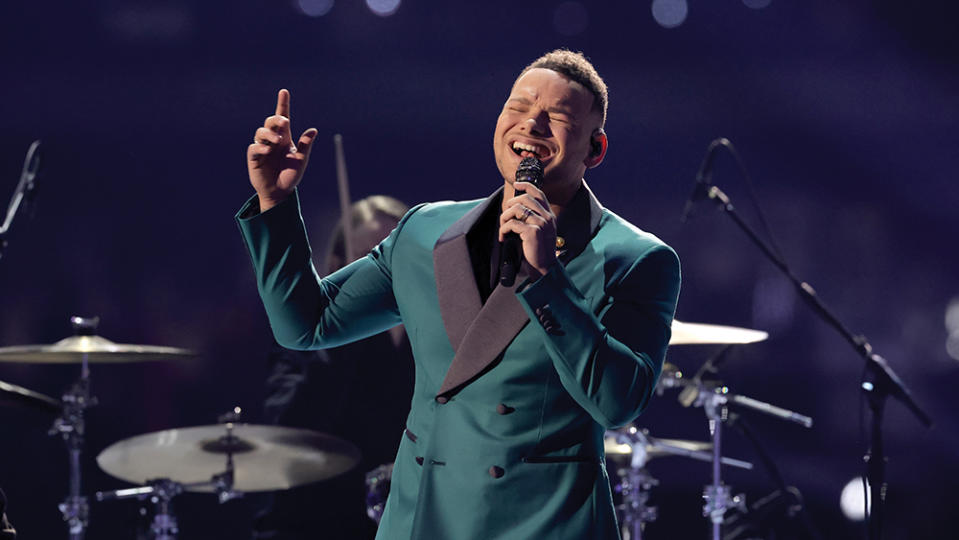
Briseno has carefully mapped out Mendes’s sartorial evolution. “I’m really into creating characters and a story arc in everything,” she says. “So that’s something that we spoke about, even early on: Who are you in this album cycle? What is our messaging?” After persuading him to wear the leather All Saints jacket for “Stitches”—to bring out his “bad-boy grit”—Briseno developed the look into a more pronounced rock-star style for Illuminate and his self-titled album and then moved into a 1940s aesthetic for his most recent album, Wonder, released in 2020.
“You know, they are celebrities so, to me, they’re a walking billboard,” says Briseno. “There has to be a strategy behind what we choose.” She begins with a mood board, as well as a list of brands to target. After a client has worn a label three or four times for big events, she says, it becomes easier to ask for bespoke commissions. “I’ll go back to Louis Vuitton or Saint Laurent or whoever and pitch them sketches and design ideas. It’s sort of a back-and-forth.” The process takes months of planning, often for a single outfit.
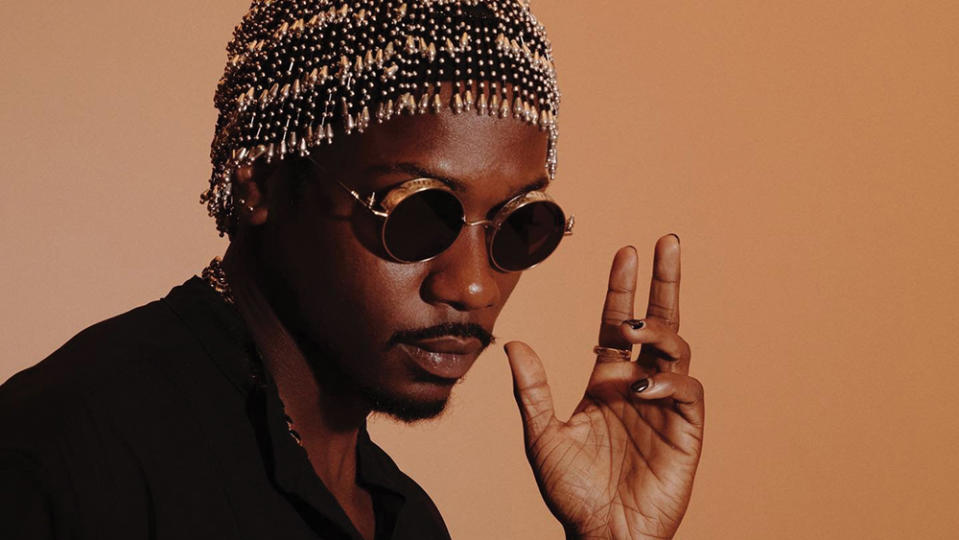
Recently, she’s been focusing on tailored suiting for Mendes, channeling James Dean and Jimi Hendrix. He wore a custom three-piece maroon Louis Vuitton suit designed by Virgil Abloh—accented with a gold-and-pearl chain handcrafted by Briseno—to 2020’s Grammy Awards. And for the Met Gala in May, he arrived in a navy-and-maroon Tommy Hilfiger suit and overcoat made from upcycled fabric, which announced a sustainable-fashion-line collaboration between Mendes and the brand.
Those ensembles seem conservative compared to what Briseno is cooking up for her next big act, rising star Kane Brown, who in August became the first male country-music artist to perform at the VMAs. She describes the vision behind his getup as “Japanese streetwear meets 1980s NASCAR in custom-color blocks”—a look that likely won’t soon be forgotten. And that’s precisely the point.
Favorite Rare Find:
A vintage 1920s beaded- pearl headpiece for rapper Channel Tres.
Secret Sources:
Second Time Around Watch Company in Beverly Hills, Calif., for antique timepieces, and Vintage Twin in New York City for no-logo T-shirts.
Career Highlight:
“For Shawn’s Wonder tour, I partnered up with designer Zandra Rhodes, who used to work with Freddie Mercury. She gave me access to Freddie’s archives. We’ll save them and use them for something in the future, but even just speaking to her—I’m obsessed. I’m a music fanatic, especially retro stuff from the ’70s.”
Lee W. Moore, Los Angeles
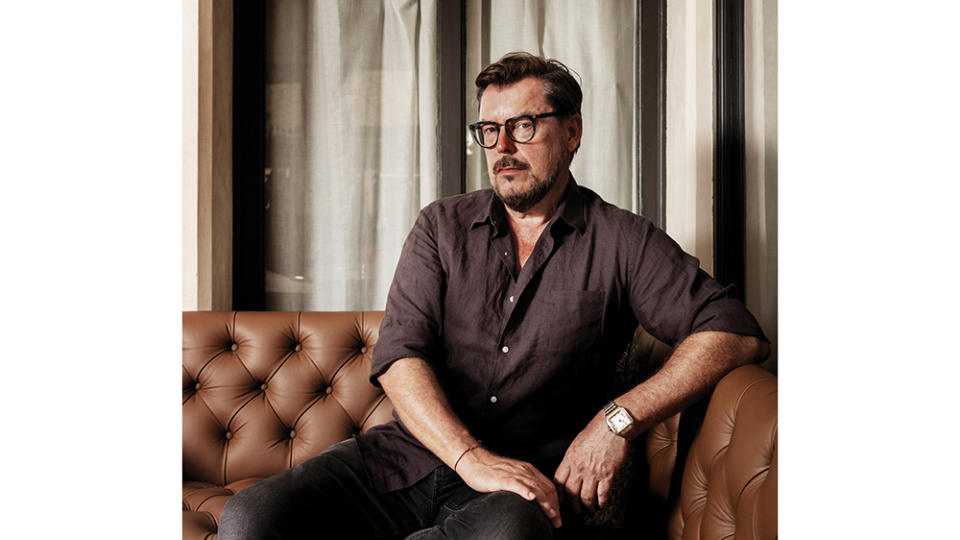
When Lee W. Moore began working in fashion in the ’80s—in various roles with avant-garde Japanese designer Mitsuhiro Matsuda and French designer Jean Paul Gaultier, as well as styling music videos for Prince, among others—he could have hardly imagined he would become one of the top stylists in country music three decades later. But Capitol Records’ Nashville executives came searching for someone to put a new spin on their artists’ style in the early 2000s, and Moore turned out to be the perfect fit.
Born and raised in Memphis, Tenn., Moore understood the South while having spent enough time in New York’s and LA’s fashion circles to obtain a more global perspective. “Outside of Nashville, people would come with a lot of preconceived stereotypes of what country music was and what it looked like,” he says. “Most of those notions were quite corny.” Big-city stylists would pore over the runway collections and pull everything with “rhinestones, cowboy boots and hats. Nashville people would just be like, ‘What is this? We don’t look like that.’ ”
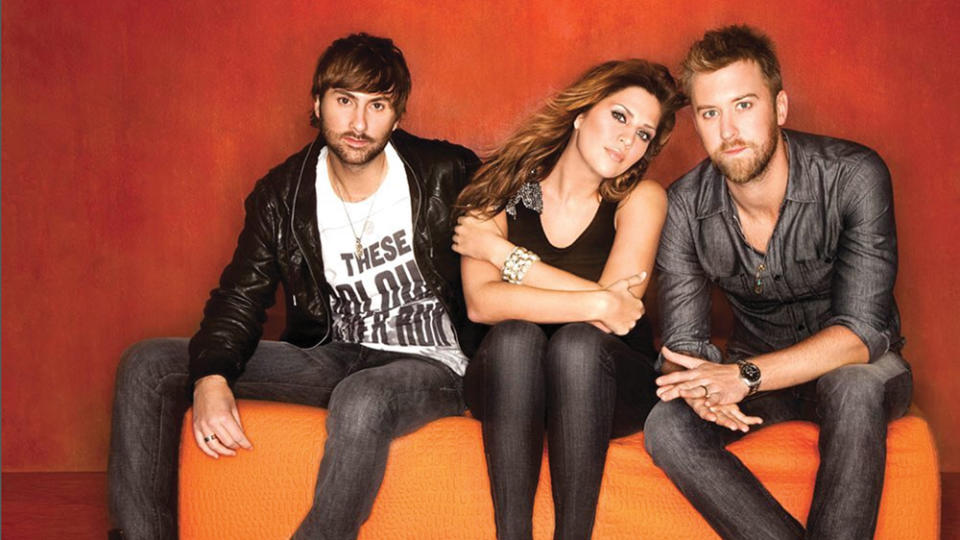
Moore has dressed everyone from Keith Urban, whose vibe skews more rock ’n’ roll than country, to Sam Hunt, who is bold enough to wear a full pink suit on the red carpet. Nowadays, outfitting his megawatt client Luke Bryan is a full-time gig thanks to the singer-songwriter’s multi-award-winning run and his role as a judge on American Idol. Bryan’s go-to suiting brand is Tom Ford. “It fits him off the rack perfectly, like it was made for him,” he says. “That saves us an incredible amount of time.” A watch collector, Bryan is also known to sport Patek Philippe, Audemars Piguet, Roger Dubuis, Richard Mille, Cartier, Vacheron Constantin and Breguet.
Moore, perhaps not so coincidentally, is also into timekeepers—he owns a Patek Nautilus that he found in a vintage shop in Milan. “It’s this tremendous flex to have this,” he says. “I tried so many times to get people into this watch. Nobody was interested until a few years ago. Now you can’t buy one anymore.”
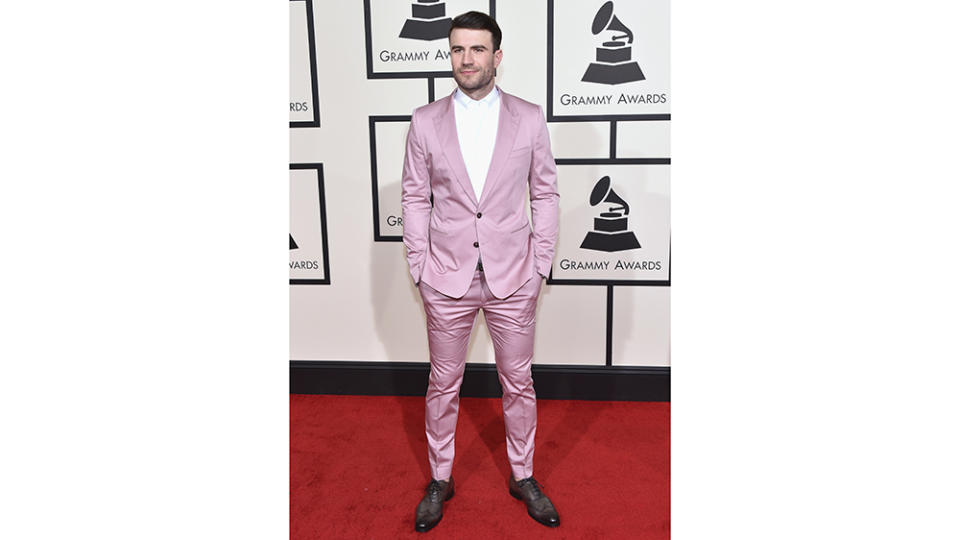
While T-shirts and jeans are still the preferred uniform in country, not just any old denim and tees will do. Country artists “perform together, they collaborate, they write together, and they hang out together,” says Moore. “So they 100 percent see each other’s stuff, and you’re trying to have a unique brand.” He scours the globe for labels unavailable in the US. Moore has an eye for subtle differences, such as a white tee with an unusual neck binding or a new sleeve, and he even buys outsize jeans purely for the color of wash or fade and then remakes them for his clients. “There is a lot of jean-shaping in my life.”
Recently he spent two months traveling around Spain, Portugal, Greece, Italy and Turkey and took time to search for rare finds. “I’m a compulsive hunter-gatherer,” he says. “I just buy it all because sooner or later, somebody’s going to need it.”
No-go Zone:
Men’s jewelry. “The early [2000s] were very heavy on V-necks and necklaces and little stringy bracelets, and I have a little bit of PTSD from, you know, dangly bits.”
All-around Client Favorite:
Lucchese boots. “Once they’re broken in, they’re incredible.”
Secret Source:
The Moroccan quarter of Granada, Spain, where he snaps up braided leather belts for $4, and Purdey, in London, for plaid shirts.
Best of Robb Report
Sign up for Robb Report's Newsletter. For the latest news, follow us on Facebook, Twitter, and Instagram.
